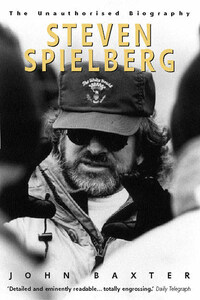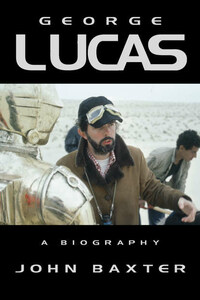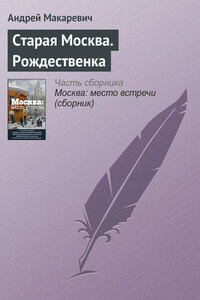Further reviews for Steven Spielberg:
âDiligent, perceptive and with every available anecdoteâ
SIMON HATTENSTONE, Guardian
âriveting⦠retains a healthy objectivity throughout his enthralling accountâ
PENELOPE DENING, Irish Times
â⦠a film-loverâs book, a review of a remarkable era, an exhaustive filmography â a movie about the evolution of Hollywood, with Spielberg as the central characterâ
JEREMY LESTER, Jewish Chronicle
âBaxter may have a blockbuster on his hands.â
RICHARD E. GRANT, Sunday Times
âhighly entertaining, packed with interesting information. If you want to know how a Spielberg film was made, what shenanigans went on during the making, or who fell out with whom, it is all here.â
WILLIAM RUSSELL, The Herald (Glasgow)
âIts usefulness lies in Baxterâs shrewd assessment of Spielbergâs relationship with the wider context of the entertainment industry in general and Hollywood power-politics⦠the account of Spielbergâs unsettled early years⦠is illuminating in terms of his later preoccupations.â
HUGO DAVENPORT, Sunday Telegraph
âBaxter is quietly professional⦠and makes good use of the copious interviews Spielberg has given throughout his career.â
ANTHONY QUINN, The Observer
âA very valuable book⦠the thing that most impresses in his book is the calm, careful and nearly gentle way in which it builds up our disquiet that the movie kingdom and our society as a whole should be so ordered that Steven Spielberg is its Gatsby, its Kane, and such a shining young example⦠it is Baxterâs most intriguing point that Spielberg not only caters to youthfulness, but extends and preserves it⦠What is so clever, I think, is Baxterâs sense of a man too narrowly focused to amount to a villain⦠Baxterâs success is beyond question.â
DAVID THOMSON, Independent on Sunday
âAn impeccably professional film-biographer (heâs already done Buñuel, Fellini, Ford and is now working on Kubrick), Baxter leaves no document unrifled, no fact unchecked, no anecdote untold.â
Sight and Sound
â⦠a full, frank and readable account of a man who the public regards as one of the greatest enchanters in the history of film.â
STUART GILLES, Manchester Evening News
Yesterday, upon the stair,
I met a man who wasnât there.
He wasnât there again today.
I wish that man would go away.
Traditional rhyme
THE FORCE of American popular art lies in its directness, its simplicity, its economy of means and of scale. Analysis may uncover cultural and autobiographical references, sophistications of technique, even profundity of intellect, but the first appeal of a George Gershwin song, a Walt Disney cartoon, a Norman Rockwell painting is, and must be, commonplace delight.
Steven Spielberg embodies this tradition. His films, even the sombre Schindlerâs List, are machines for delighting us. Almost always they succeed in doing so. Itâs not hard to see why. He traffics in what authors of science fiction, his preferred form, call âa sense of wonderâ, a heightened apprehension of physical possibilities. It has been said that the universe is not only stranger than we know but stranger than we can know. Spielberg dispels this idea. His vision, like that of the best science fiction writers, is of a welcoming, explicable place.
Writing about Ray Bradbury, whose books like The Martian Chronicles and Something Wicked this Way Comes share Spielbergâs simplicity of vision and sureness of technique, the critic Damon Knight, in a passage that could well refer to Spielberg, remarked:
To Bradbury, as to most people, radar and rocket ships and atomic power are big, frightening, meaningless names; a fact which, no doubt, has something to do with his popular success, but which does not touch the root of the matter. Bradburyâs strength lies in the fact that he writes about the things that are really important to us: not the things we pretend we are interested in â science, marriage, sports, politics, crime â but the fundamental pre-rational fears and longings and desires; the rage at being born; the will to be loved; the longing to communicate; the hatred of parents and siblings; the fear of things that are not selfâ¦










